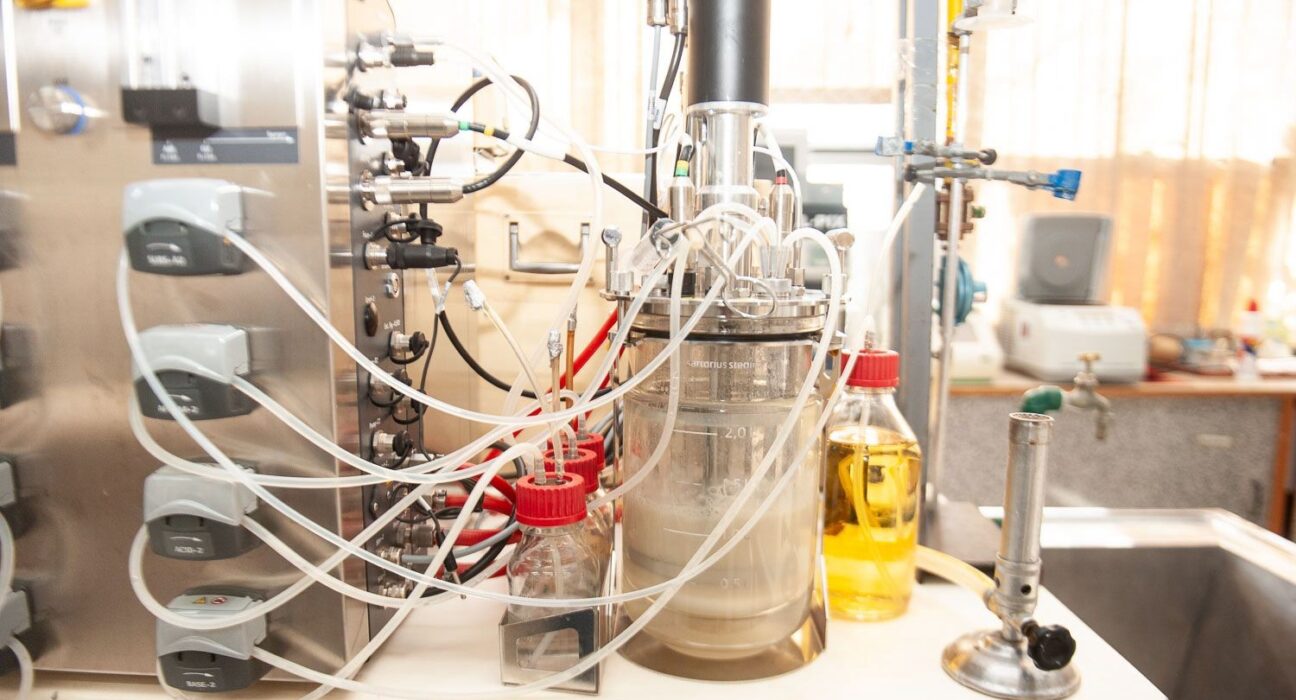Kombucha, the fizzy tea with a tangy taste, has piqued the interest of researchers at the Federal University of Rio Grande do Sul (UFRGS). Behind this fermented drink lies a realm of uncertainty, even among scientists. Beyond supermarket shelves and marketing hype, what are the biological effects of this beverage on our bodies? Driven by this question, biomedical expert Bruna Krieger Vargas delved into a study aiming to uncover concrete answers about kombucha’s effects. To do this, she first needed to create a standardized version of the drink.
Kombucha, crafted from tea, sugar, and a colony of microorganisms, holds potential health benefits through its antioxidants and fermentation byproducts. However, the challenge in studying kombucha lies in its lack of a specific recipe, leading to variations in each preparation. Collaborating with lab partner Mariana Fabricio, Bruna embarked on a journey to establish a “base recipe” for kombucha. Their standardized version, brewed with green tea and specific microorganisms, yielded a fermented drink in just two days, a process that typically takes a week.
The shortened fermentation period not only ensured product consistency but also facilitated the evaluation of antioxidant effects. This led to a pivotal discovery: the standardized kombucha exhibited higher antioxidant activity than its commercial counterparts. Despite these findings, Bruna emphasizes the importance of recognizing that these results apply specifically to their standardized kombucha and cannot be generalized to all variations.
In the quest to unravel the mysteries of kombucha, Bruna then delved into testing the drink’s potential antioxidant and toxic effects. Surprisingly, the standardized kombucha showcased superior antioxidant activity compared to commercial versions. Antioxidants play a crucial role in protecting our cells from free radicals, making the consumption of the researched kombucha potentially more beneficial than market alternatives.
Moreover, the study aimed to establish a daily consumption recommendation for the beverage. While doses up to 1 liter per day showed no toxicity in their in vivo model, the effective dose for antioxidant effects was significantly lower at 600 ml per day of the standardized version. Bruna also highlights the presence of alcohol in kombucha, albeit in small amounts, due to fermentation by microorganisms. This factor, along with the necessity of sugar for fermentation, raises considerations for individuals with diabetes regarding kombucha consumption.
The research not only sheds light on the potential benefits of standardized kombucha but also advocates for improved regulation in Brazil. Standardization not only serves to validate the actual effects of the beverage but also enhances safety measures for consumers. As Professor Marco Antônio Zachia Ayub suggests, stricter quality control parameters beyond pH, acidity, and alcohol content should be enforced to ensure consumer safety.
In conclusion, this study underscores the significance of standardized kombucha in offering heightened antioxidant benefits compared to commercial varieties. It also emphasizes the need for tailored consumption recommendations and heightened regulatory standards to safeguard consumer well-being in the ever-evolving landscape of functional beverages.

